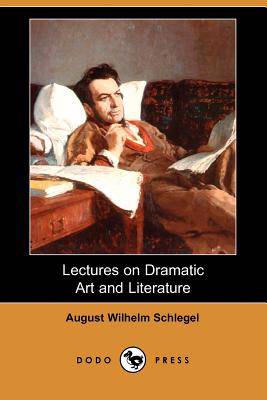
- Afhalen na 1 uur in een winkel met voorraad
- Gratis thuislevering in België vanaf € 30
- Ruim aanbod met 7 miljoen producten
- Afhalen na 1 uur in een winkel met voorraad
- Gratis thuislevering in België vanaf € 30
- Ruim aanbod met 7 miljoen producten
Zoeken
€ 26,95
+ 53 punten
Uitvoering
Omschrijving
August Wilhelm (later: von) Schlegel (1767-1845) was a German poet, translator, critic, and a foremost leader of German Romanticism. He was educated at the Hanover gymnasium and at the university of Göttingen. With his brother Friedrich, the principal philosopher of German romanticism, he founded Athenaeum (1798-1800), the chief journal of the movement. In 1802 Schlegel went to Berlin, where he delivered lectures on art and literature; and in the following year he published Ion (1803). His Lectures on Dramatic Art and Literature (Über dramatische Kunst und Literatur, 1809-1811), which have been translated into most European languages, were delivered at Vienna in 1808. In 1813 he acted as secretary of the crown prince of Sweden, through whose influence the right of his family to noble rank was revived. Schlegel was made a professor of literature at the university of Bonn in 1818, and during the remainder of his life occupied himself chiefly with oriental studies, although he continued to lecture on art and literature.
Specificaties
Betrokkenen
- Auteur(s):
- Vertaler(s):
- Uitgeverij:
Inhoud
- Aantal bladzijden:
- 500
- Taal:
- Engels
Eigenschappen
- Productcode (EAN):
- 9781406539103
- Verschijningsdatum:
- 3/08/2007
- Uitvoering:
- Paperback
- Formaat:
- Trade paperback (VS)
- Afmetingen:
- 152 mm x 229 mm
- Gewicht:
- 725 g

Alleen bij Standaard Boekhandel
+ 53 punten op je klantenkaart van Standaard Boekhandel
Beoordelingen
We publiceren alleen reviews die voldoen aan de voorwaarden voor reviews. Bekijk onze voorwaarden voor reviews.











